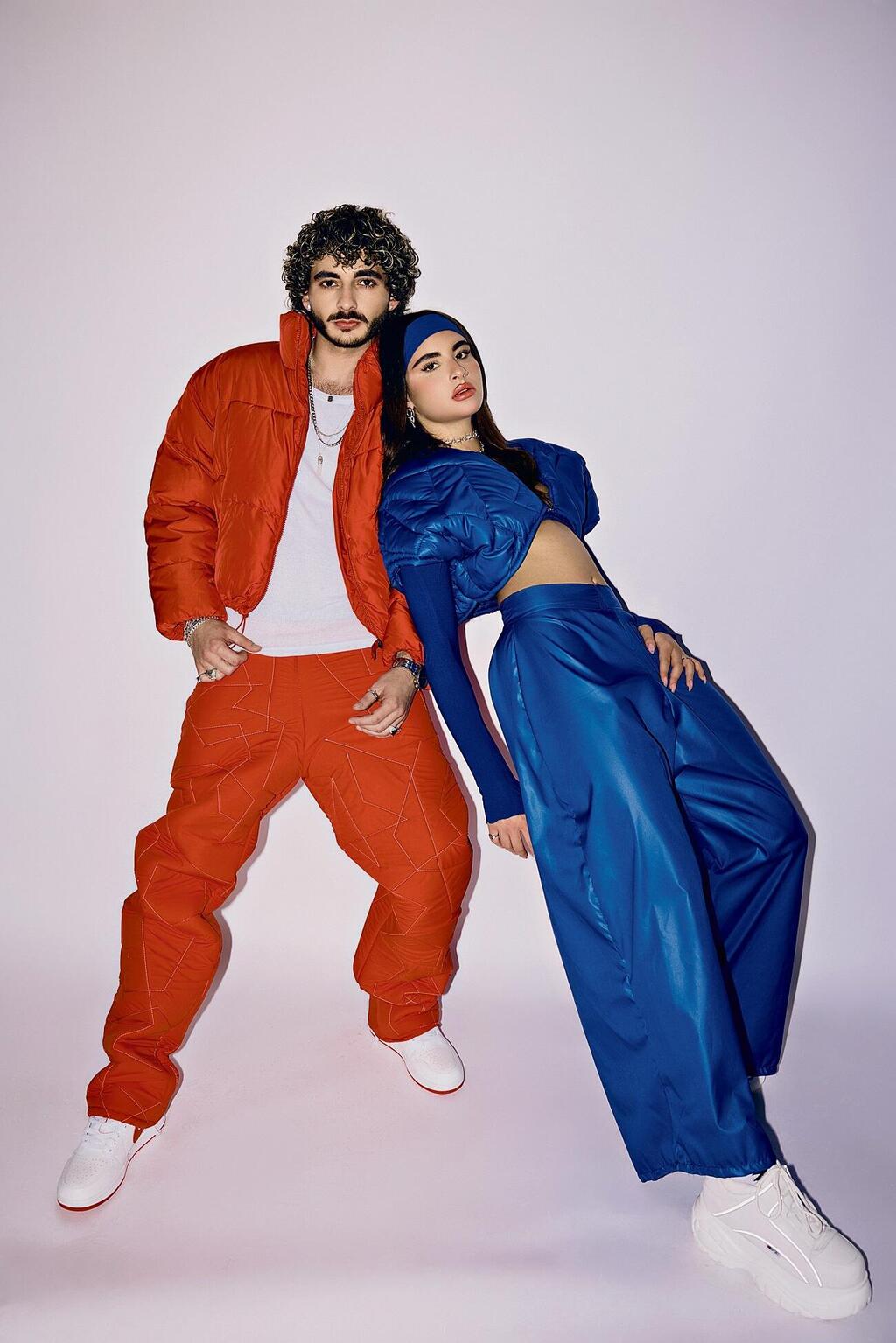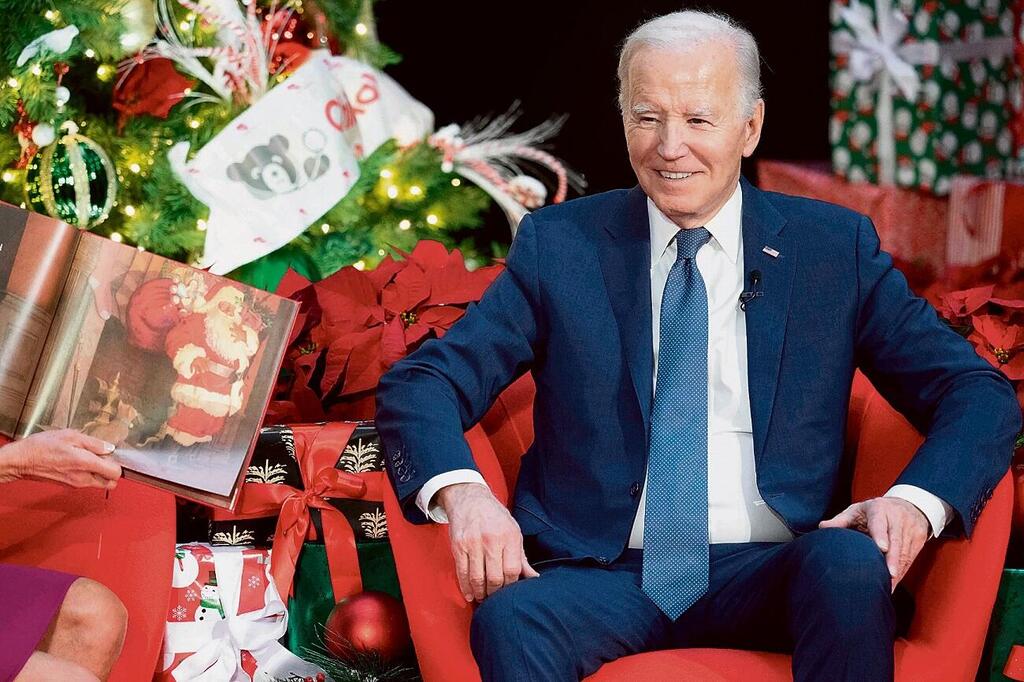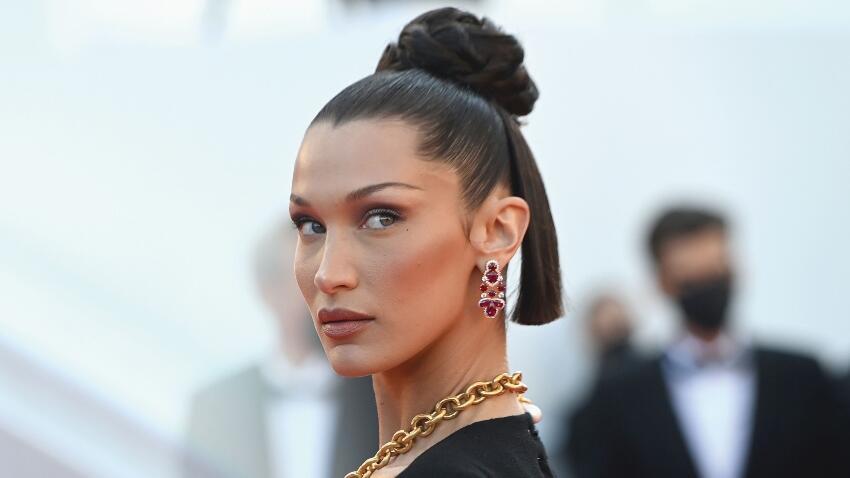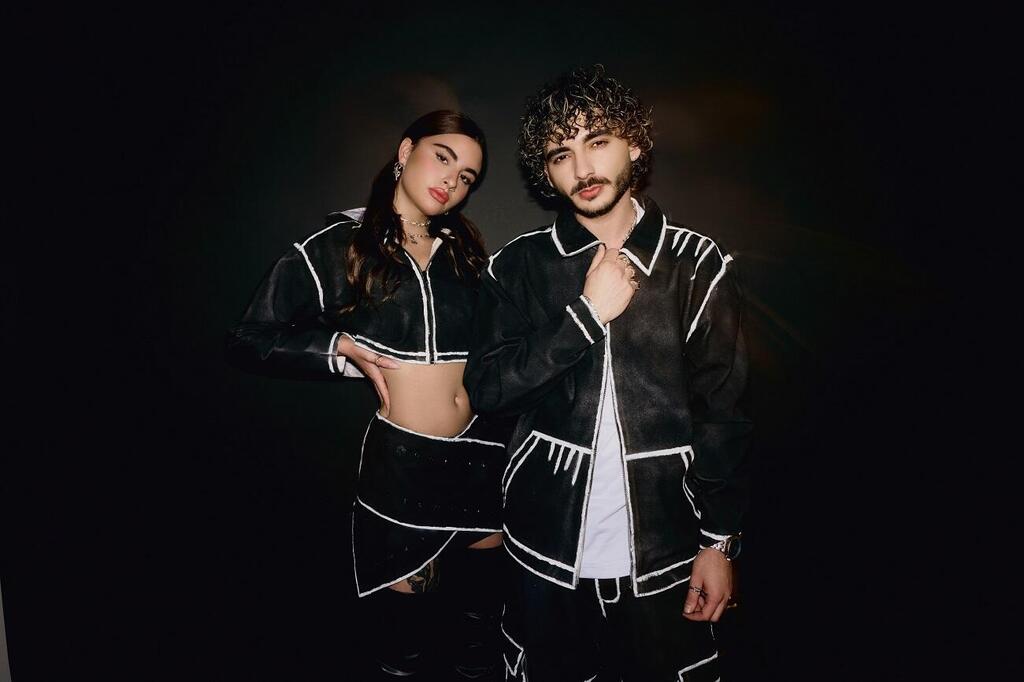Two national hits skyrocketed Nes and Stilla to dizzy heights they couldn’t have imagined in their wildest dreams. But they’ve no plans for an international tour anytime soon. They may well meet Harbu Darbu up close.
Read more:
“Since the song came out, I’ve been getting phone calls saying things like ‘We are going to kill you. We’ll look for you and we’ll find you,’” says Dor Soroker, aka Stilla. “In Arabic and broken Hebrew, and even more broken English, they’re literally threatening our lives at crazy levels. There were cyber-attacks on our managers’ phones, crashing them. The worst were the threats on our families. They wrote to me saying they knew my brothers, that they’d go house to house to get to each of them.“
Were you afraid?
Stilla: “It was scary for a moment. I understood that it would be irresponsible for us to go to not-so-friendly parts of the country at the moment, and definitely not leave Israel. I admit that I’d be a bit concerned about traveling overseas right now. If I had to for some reason, I’d keep my curly hair well hidden.”
Nes: “I’ve gotten lots of threats. Thousands of hate messages on every platform you could think of, wishing me the most horrific things. It hurt me. Someone wrote to me ‘You’re a baby-killer.’ It’s terrible.”
Stilla: “I’ve no problem getting this kind of violent feedback. We’re representing the country, and this song raises morale, so we’ll take the threats. It’s worth it.”
Nes and Stilla’s song “Tik Katan” (Tiny Purse) could have made them no more than a one-hit wonder. As they were searching for another national hit, along came October 7. “Tik Katan” suddenly sounded like it belonged to a world no longer relevant, and the duo’s future seemed rather uncertain. But out of the chaos and darkness, their mega-hit “Harbu Darbu” was borne. Although this war doesn’t have a name yet, since November it’s had an anthem.
It was very hard to create something after “Tik Katan,” Stilla tells us. “We felt people expected a lot of us in terms of the next hit, and we just didn’t know how to do it. We had a song we wanted to release before the war. It had an angry vibe and was about a group of friends in a car. But then the war started and all our plans for the future took a backseat. We’re desperate as a country and as a society.”
Nes, you had friends at the Nova festival
“A close friend, Netta David, went to the party with two friends from the Border Police, Kim Dokraker and Raz Mizrachi, of blessed memory. She returned alone. It was a miracle. She also saved a lot of people along the way. She managed the situation like Wonder Woman, with military calm. A few of my good friends are now in Gaza. Others were injured on October 7. There was a situation when 3 of them faced 50 terrorists – and two of them came home. There are stories of outstanding bravery. I was with Netta the whole day and the whole night after what happened at Nova. I accompanied her to the rehab farm. I met the beautiful people who came back from the massacre. Then, after these extremely difficult days, Dor sent me the Harbu Darbu demo.”
Stilla: “On October 7, I didn’t know what to do with myself. On a human and emotional level, we couldn’t sing songs like Tik Katan. The general feeling was that we had been defeated as a nation and humiliated as a country. This feeling was guiding us as we were writing Harbu Darbu.”
Three weeks into the war, it clicked. “I got back to reality and started thinking: We’re the craziest and smartest country in the world. Our army has the biggest heart in the world. We’re still very strong. I saw President Biden quote Golda who said that Israel’s secret weapon is that we have no other country. That got me.”
So, Biden deserves Harbu Darbu royalties?
“In some ways, yes. I heard an officer from the war say over the walkie-talkie something like ’Harbu Darbu on their heads’ and ‘Harbu Darbu’ got into my system. The next day, two friends came around - Orel Underdog, my partner from Helem Tarbut, and Roisha. We decided that the time had come to turn the sadness into anger, and agreed we should do a song to unite us, about what they did to us and how we feel defeated, but that we’re seriously not. In my mind, I keep thinking about my little brother, in a combat position in the navy. I said we need to raise morale for ourselves, as well as for my friends and Nes’s who’ve been called up for reserves, to give them a boost, to show we support them.“
To create a kind of anthem
“Exactly. We started with the chorus and said we’d include all the army units in the song.”
Are there units disappointed they’re not in?
“We forgot the Search and Rescue Brigade. I got a few messages from their guys. I’m so in awe of that brigade. It was just a mistake. We also got some angry messages from Givati because, in the song, we say ‘Where is Givati?’ – for hype, but they didn’t see it that way. Oh, and Nes didn’t get back to me for a week after I sent her the lyrics.”
Nes, is this true?
“I was having a hard time. I was heartbroken. My best friend was hurting and I was with her all the time. How could we possibly raise morale from a place like that? But then, you understand the power you have and you roll with it.”
Harbu Darbu has been a great success, but critics have claimed that Harbu Darbu becoming such a big hit, only proves we’re a bloodthirsty nation.
Stilla: “As a nation, we have no bloodlust in any shape or form. But we’ve experienced a serious trauma. Everyone knows someone who’s been killed or kidnapped. Our need is not for revenge, but to defend ourselves and remember that we’re strong together. This is where the song’s coming from, not from any thirst for blood.”
Some won’t see it like that
“It’s controversial, and that’s okay. The fact that it’s become such a huge hit only goes to show that we need a song to make us stronger. If a soldier going into Gaza, hears Harbu Darbu, and it makes him and his friends feel safer, we’ve achieved our goal.”
Some might say the song’s a bit Fascist
“It’s a militant song that’s all about the IDF, but it’s not Fascist. I’m not calling to murder anyone. I’m calling for whoever hurt us to be brought to justice – not for revenge, but rather in the name of justice. Anyone saying the song’s fascist hasn’t really looked at the lyrics, but has come with preconceived ideas – as if I, or anyone else want to erase the Palestinians because we’re racists. That’s not true. That’s not where it’s at.”
Nes: “We came from anger. They hurt us, they murdered us, and we’re strong and we won’t be suckers.”
In the song, you call them Amalekites. The Bible commands us to destroy the seed of Amalek
Stilla: “True. It’s harsh, but we used this term as slang. Forget what it says in the Bible about what we’re supposed to do with the Amalekites. We obviously don’t mean all the Arabs. I have Arab friends who’ve asked me what we mean. I told them it’s slang about those who took part in the October 7 massacre – the people who planned it, supported it and cheered it on from the sidelines. We haven’t called to erase an entire population but rather only our enemies – and showing no mercy. ‘Amalekites’ is a metaphor for the enemy you’re facing. Clearly, not all Arabs are like this.“
And isn’t 'Every dog gets what he deserves in the end' a generalization?
“I could sum up the song in two sentences. 1. We have a strong army, and we’re proud of ourselves. 2. Every dog gets what he deserves in the end, i.e. whoever took part on October 7 must be brought to justice. This includes famous terrorists and influencers inciting their followers with lies.“
Harbu Darbu made it internationally because of the people mentioned in the song including Bella Hadid, Dua Lipa and porn star, Mia Khalifa who even tweeted a response, writing “Y’all that song calling for the IDF to kill me, Bella and Dua is over a DRILL beat. They can't even call for genocide in their own culture. They had to colonize something to get it to #1." Grey’s Anatomy’s Jess Williams shared an Al Jazeera video claiming that “a pro-war song which has been condemned as a call for genocide has topped the music charts in Israel.”
You put Bella Hadid, Dua Lipa and Mia Khalifa in the same breath as murderers like Nasrallah and Haniyeh, Isn’t that a bit problematic?
Stilla: “They’re not physically holding guns, but their words are very powerful. Disseminating lies is dangerous. And what if their fake news inspires people to kill Jews? It’s very similar to what Nasralla does in his speeches.”
Nes: “If you’re talking to tens of millions of followers – it’s enough for 20 to do something after you’ve shared something – and you’re a partner in something terrible that’ll happen.”
Let’s move on. The line “Another X on your gun” does sound like rejoicing in boldly killing people
Stilla: “At the end of the day, we wanted soldiers to connect. When you take down a terrorist, you put an X on your gun, not because you want to kill, but rather to kill before they kill you, like on October 7. It’s not rejoicing in killing. It’s totally self-defense.”
Dua Lipa’s fans were worried
Nes: “Mia Khalifa’s too, apparently. They think we’re going to send our army to kill them. It’s absurd. They’ve also generally translated the song into English really badly and it really does sound bad sometimes.”
Stilla: “Mia Khalifa, you can relax. We’re just musicians. We’re not in the government. They made us out to be a bunch of Jewish Fascists who want to kill Arabs. That’s what they show the world – that they’re so miserable and we’re so strong. Then, along comes a song like this that’s #1 in Israel and it lets them say that’s what we’re really like.”
Perhaps it’s not good for Hasbara?
“We’re not national Hasbara representatives and Harbu Darbu isn’t a Hasbara song. We clearly took into account that it would be a big hit, and we’ve even fantasized about taking it beyond Israel. But even if I had known that all of this would happen, we wouldn’t have changed anything.”
Nes: “We’d have written the exact same thing.”
Nessya Levy was born in Ashdod in 2002. She was raised on Moshav Shtulim near Ashdod. She is the eldest of five. “My mother called me Nes, because she had a high-risk pregnancy and was told I’d die if she fasted on Yom Kippur when she was eight months pregnant. But thank God I came out fine.“
She graduated high school with top grades. “I was a real geek. I did most of my matriculation exams, as well as my psychometric (SATs) in 11th grade.”
Stilla: “She won’t say it herself, but the girl’s a genius.”
After serving as an instructor during her military service, “I wanted to establish myself financially, so I began studying cyber and information security, but my heart was always in music. At 20, I moved to Jaffa to an apartment with roommates. I got into lyrics, especially rap. I found a crazy scene and a band called ‘Helem Tarbut’ that Dor was in.”
Were you a fan?
“I mainly fell in love with his music. It got me from the very first moment.”
From the ages of 12 to 17, Nes lived a religious lifestyle. “I kept Shabbat and prayed and was strict about dressing modestly. At 17, I started writing on Shabbat because if I couldn’t write what I was feeling, I wouldn’t be complete. I still believe in God and I’m very respectful of religion.”
Stilla: “You have to go to her house on Friday. Everything’s clean and tidy. There’s a cloth on the table, and food cooking on the stove. She can go out clubbing and still light Shabbat candles.”
Dor Soroker was born in Hadar Yosef, Tel Aviv in 1998. “I’ve lived in a lot of places. When he was two, the family moved to Ashdod and then to nearby Moshav Emunim. There are four of us. Three of us were raised together and our older brother, Michael, from my father’s first marriage is American. He gave me the stage name Stilla.”
What does Stilla mean?
“I’m not very good about what I eat. I love junk food like pizza and McDonald’s. Michael would always ask me ‘How are you still alive?’ It was a running joke from the time I was 14 and everyone started calling me Stilla. On the street, people call me Stella and even Tesla.”
As a child, he took piano lessons with a teacher called Ora who also taught Nes. “But we didn’t know each other back then. My family moved to the Galilee to Kibbutz Sde Nehemia. That’s where I had most of my schooling. I became a kibbutznik.”
That’s quite a transition
“The vibe changed. In Ashdod, people are more ordinary – let’s put it that way. More diverse too. I came from a traditional family, so it was a bit of a culture shock. I suddenly got to hear leftist ideas. I couldn’t believe it when I saw bread on my first Pesach on the kibbutz. How could this be happening in Israel?”
Coming from the outside and getting used to a kibbutz couldn’t have been easy
On a kibbutz, there are only a few kids in your age group. You either make friends with them and get along with them, or you have no friends.”
And what did you do?
“Because we kept moving, I had social anxiety. I didn’t get why people on the kibbutz were calling me names because I made kiddush on Friday night. They saw me as a bit weird. I dressed differently. They were all walking around barefoot. I thought they were weird. But music was always there for me. I told my father I wanted a red electric guitar for my 11th birthday and I got it.“
From there, he got into the Israeli rock scene. “I started playing in bands and performing in local bars. I was a little kid with a big guitar. At 15, I got my first Tupac CD. I owe my English to my brother, Michael. I put the guitar to one side and told myself I needed to start writing like Tupac, but in Hebrew.”
For his military service, he served in a combat intelligence unit. “It was very I hard and I feel we did very important stuff. I’ve seen Hezbollah up close. I know every stone, house and village in half of the Lebanon sector. We’d do stakeouts that could last for days. One time, we had an operation where we found ourselves facing Hezbollah aiming RPGs at a large group of our soldiers. It went on for hours. We knew it could kick off at any minute. It ended okay.”
At 16, Stilla discovered weed and his life went into a tailspin. “I was stoned 24/7. I couldn’t go without. My social anxiety got much worse. I distanced myself from people, even from the girlfriend I had at the time. I’d sit there all day long writing rap lyrics. It must be said that this really got my creativity going.”
But it comes at a price
“The anxiety escalated and I just wanted to smoke to suppress the anxiety. When you’re a kid, you don’t understand it’s a loop. Everyone on the kibbutz knew I was smoking weed. When people hear the name Stilla, they think of the eyedrops anyway – so it took on a double meaning. Other kids also wanted weed, so I started hooking them up. I connected with a dealer and started getting weed for all the kids on the kibbutz, then for school. I suppose I was a bit of a teenage dealer.”
Didn’t your parents or teachers intervene?
“I hid it well. I didn’t make a lot of money out of it. I quit school at 17. I was just interested in weed and rap. This is how the three of us set up Helem Tarbut where I started writing and singing.“
When did you parents find out about the weed?
“I told my father when I was 17. Instead of being pissed with me, he told me not to overdo it and to be aware of the negative effects. He knew he couldn’t forbid a 16-year-old from smoking weed as I’d smoke either way. He tried to educate me about using it correctly.”
When did you stop?
“Before the army. I wanted to serve in a combat unit.”
And now?
“Here and there, in the right amount. It does wonders for your getting your creative juices flowing. This is how I best connect to myself.”
Nes, what do you think about weed?
“I was into it at one point on the moshav, after my army service. Weed can cause anxiety, but if you’re with people you’re comfortable with, it’s fun to feel liberated. I’m looking at it from a very conservative background.”
Explain
“I lived in an environment that’s all about how you talk, what you do, what kind of message you’re putting out and why you’re hanging out with certain kinds of people. But part of me is about breaking through glass ceilings. Although at home we lacked for nothing, I’ve been working since I was 13 washing dishes etc. Before the army, I worked in a logistics company and I noticed that they put women on certain jobs – like packing and putting orders together.”
Did you feel they were trying to belittle you as a woman?
“I’d run around men working on containers. I gradually became a manager. One day, a 40-year-old guy said to me ‘Tell me, are you Oriel, the manager’s secretary?’ I just said ‘Good morning, Sir. There’s a lot of work to be done.’ I’m no sucker. In our cyber class, we were two female students in a class of 40 guys. So, you have to prove that your question isn’t more stupid than the guys’ questions. I bring this to my music.”
What do you mean?
“In music, there are far more male rappers and producers. There’s definitely a patriarchal vibe going. I’m nearly always the only woman in a meeting. Men will generally talk very grandly. At first, they’re not really on board with a woman talking like she really knows anything. After learning and dealing with it, I decided not to let them make me feel stupid. I know what I’m worth. I’ll prove it and I won’t be afraid to speak up.”
Have you ever felt helpless in the industry?
“All women have. I don’t know a single woman who hasn’t been harassed. This includes walking down the street, feeling good about yourself and getting whistled or honked at. Some might call it harassment. Others might say that if she’s walking around in a tank top, she wants it.”
And where are you on this?
“Over the years, as you grow up and learn your place and value yourself, you crave less and less the kind of attention that doesn’t evoke respect. I dress the way I do because it’s comfortable and I feel beautiful. But just look at what’s been going on in this war – women are fighting in Gaza. It’s crazy, a real breakthrough.“
'A mutual friend told me she writes rap'
Nes: “I knew who Dor was and I was all ‘OMG, I’m actually talking to him.’ ”
Stilla: “I told her there weren’t a lot of female rappers in Israel and, as a music producer, I was looking for the next thing. Two weeks later, she started sending me messages on Instagram. I didn’t have her phone number. I had a girlfriend at the time, so I wasn’t giving my phone numbers out to random girls in clubs. I found in Nes a very strong personality with the kind of force I hadn’t seen in Israeli female rappers. I told her it was in its very early stages, that it’s far off, but that it can be amazing.”
Nes, were you offended?
“Not at all. I was just excited that he’d listened and had given me his professional opinion. I asked him to recommend someone I could work with and he said he was willing to give it a chance.”
He didn’t suggest you become a duo, but rather was offering you musical management?
Stilla: “I hadn’t even thought about working as a duo. I was making a living with Helem Tarbut and working with schoolchildren. I was hearing something different from Nes. Very few women have the courage to do rap. It’s a huge advantage because it sticks out and now the question was whether she could do it well.”
“Tik Katan” was released on April 30 and proved a big hit. It all came from Nes’s phone notelets. “We were working on totally different lyrics,” Stilla tells us. “The session wasn’t really going that well. I said ‘Let’s stop. You don’t fight with a song.’ I asked her to look at the notes on her phone to see what she’d been writing. One sentence - ‘All the girls carry around tiny purses’ - got me hooked.”
Nes: “I wrote it in the car. I always put down beats and let my mind take it from there. It flowed. I hummed a section without words. Then it slowly came... “All the girls carry around tiny purses.’ That’s how it started.”
Tik Katan is a metaphor for life, scars and personal baggage
Stilla: “Exactly. Nes said before that there’s not a single girl who hasn’t been sexually harassed. Sexual harassment is something you carry around like a purse. It’s a trauma that you have to carry with you wherever you go. I wrote lyrics about how every woman is carrying around her own baggage, so you shouldn’t just tactlessly hit on her.“
To everyone’s amazement, the song went viral on TikTok last March – before it was even finished or had been officially released. “Nes filmed a video in her car and uploaded it to TikTok without thinking about it very much. It spread like wildfire, with hundreds of thousands of views. We were then under enormous pressure to officially release it.”
But the song wasn’t ready
“It really wasn’t. Very bravely, because we’re shahids, we just said fuck it, we’ll only release it when it’s finished. Two months later, they told us ‘Enough, it’s not worth it anymore. Don’t release it.’ But we believed in the song and it worked.”
Tik Katan raised Nes and Stilla’s profile and their workload soared. It was crazy. It was going great on the radio and on streaming. Their diaries were full of breakthrough gigs. “We were giving guest appearances everywhere you could think of. For weeks, it was crazy. We were performing in venues up and down the country - clubs, Bar Mitzvahs and even filming an advertisement for Bezeq. We then found ourselves with Israeli music and comedy icon, Gidi Gov who’s a demigod for us. It was hard to take it all in.”
They’re managed by Stilla’s friend, Dor Maman. He has no experience in management, but outstanding abilities.
How’s the money?
“I’m saying nothing new when I say that a song or two here in Israel don’t make you rich, but for now, we’re getting good royalties from both songs. Not bad.”
You’re now famous
Nes: “For me, it was all very sudden. Dor had been in music and on stage for years. For me, it was overnight. The attention you suddenly get isn’t natural. You just can’t get your head around it.”
Give an example
“I’m a bit of a loner. I have lots of friends, but inside I very much need my own space. The sudden attention is very confusing and I sometimes feel it’s all fake. Where were you all before Tik Katan?”
Do you feel more sought after?
“You get more attention. It’s not necessarily positive. People feel they can invade your personal space and say inappropriate things. They sometimes forget that I’m a 21-year-old girl who can be in a good or bad mood.”
Stilla: “At performances, it’s okay. You have to be your 100% to each and every person. Less so when you’re in the street or a club, or at the mall or ordering McDonalds. There was a delivery guy filming us from the street. It makes you feel like an object living in a fishbowl.”
Like in “Big Brother”
“Exactly. Thursday night, I was on my way to a friend and a group got hold of me and said ‘You’re that singer.’ I said ‘Yes’, and they pulled me a shoved a camera in my face. It makes you feel threatened and uncomfortable, especially with my social anxiety. They’re coming from a positive place and it’s great that they know your music, but you learn that you have to set boundaries.”
How do you set boundaries?
Nes: “I’m no sucker. I was raised on a moshav. You just need to show that you’re not afraid of them. The moment you feel they’re about to cross that personal line, they get blocked. If someone catches hold of my shoulder, I’ll just say ‘Hey bro, how’s your night going?’ It confuses them.”
Nes is single and so is Stilla, who broke up with his girlfriend of ten years. “I was with the same girl from the age of 14 to 24. We split up a year ago. She’s very supportive”
How many times a day are you asked if you and Nes are a couple?
“All the time. It drives us mad. It makes for good gossip and maybe it’s interesting. We’re not a couple, but rather a musical collaboration and good friends who love each other very much.”
What if the third song isn’t a hit?
“We won’t create songs for them to become hits. That’s a sure way to fail. Quite the opposite, let’s relax and enjoy the ride and release a song that we feel connected to. I think that’ll only be possible when we can do songs not about the war. Releasing another war song, will look like we’re just riding our own wave.”
Nes: “We’re under a lot of pressure to put out another hit, but what’s important for us right now is being totally happy with our music.”
Stilla: “We’ve been doing what we love until now and the audiences are loving it. Who’d have thought Harbu Darbu would do better than Tik Katan?”
People are already comparing you to Static and Ben El
Stilla: “I like that comparison. They changed the Israeli music and entertainment industry. I’m honored, but our musical styles aren’t at all similar. We were raised on Static and we have a song of his on our album.”
Nes: “I like the comparison too and I think we’re also aiming high and bringing something new. I hope that’s the similarity people see.”
Stilla: “I think we’re still focused and we’re creating national hits. I’ve been committed to this since I was 17. Nes is now going through what took me seven years – from never having been on stage at all to a hundred performances through the summer – sometimes five a day. It’s extreme. She needs to work harder than any other artist – and she does it.”
Nes: “And I love every minute of it.”









